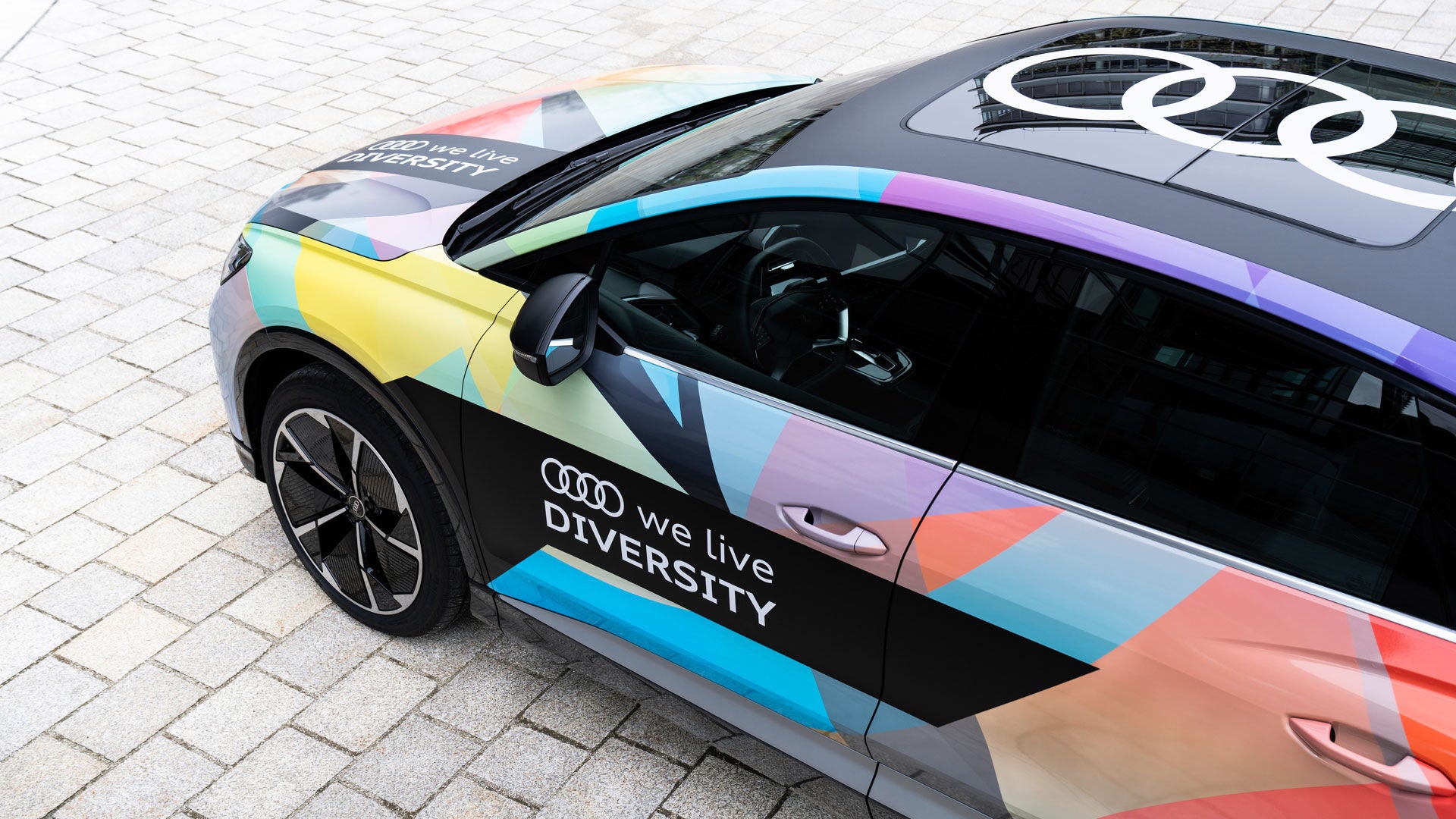We live responsibility
missing translation: fa.article-intro.reading-time – 02/17/2023

At 8:00 a.m., Sarah Schwellinger starts another day full of emails and telephone calls to various suppliers of the Audi Group whose issues need clarifying. Today, she answers questions such as “What sustainability requirements do I have to fulfill as a supplier to Audi?” or “How can I, as a supplier to Audi, help to ensure that my own suppliers respect human rights?”
Sarah Schwellinger devotes several mornings each week to this important groundwork. The expert takes the time to provide detailed answers. “As a company and as a relevant customer of our partner companies we have to accept responsibility and take a stand with our standards. Direct contact with our suppliers is important if we want to make a difference in the long term.”
Audi works with over 14,000 supplier companies from 60 countries. “Due to the large number of suppliers and subcontractors, we have to deal with a very high level of complexity on a daily basis. That’s why we first address the areas where the risks are highest,” explains Sarah Schwellinger. A few years ago, Audi set up a dedicated organizational unit within Procurement to keep track of everything: Sustainability Supply Chain. Here, Sarah Schwellinger and her colleagues join forces with suppliers to ensure, for example, that CO2 emissions in the supply chain are reduced, material cycles are closed, new technologies are harnessed for more sustainable supply chains and the working conditions at supplier companies meet international standards. “We usually have indirect influence – sometimes even direct influence – on all people involved in the supply chain, on their work, lives and families. We deal with this very responsibly and want to leave a positive mark,” says Sarah Schwellinger about her work. “When we discuss suppliers with our colleagues from Purchasing, I sit at the table on behalf of these people who can’t be present.”
Putting people first
In 2007, while studying politics, the Mannheim native completed an internship with an agency that advised the Hessian State Chancellery on sustainability. The work ignited a passion for the topic in her. Starting in 2010, Schwellinger went on to earn a master’s degree in sustainability science. “We covered everything, really, from microplastics in the oceans all the way to legal issues.” Human rights also played a major role in her studies, as they do now in her work for Audi.

For instance, she and her colleagues apply the Sustainability Rating (S-Rating), which was introduced in 2019. The S-Rating is a tool that the company and its suppliers use to ensure that human rights, occupational safety and environmental protection are observed along the supply chain. To verify these points, they inspect the human rights policy and the environmental management system for suppliers and sub-suppliers, for example, or interview employees during risk-based on-site checks. A positive S-Rating is a prerequisite at Audi for awarding contracts to suppliers and makes a significant contribution to sustainability in the supply chain. A negative rating is taken very seriously: the supplier company must work through the documented points before another on-site check is carried out if necessary. “The aim, however, is not only to uncover problems, but also to solve them together. To prevent problems from occurring in the first place, we offer our suppliers regular training courses and training materials,” Schwellinger explains. Since January 1, 2023, this form of cooperation in the supply chain has become even more important: that is when the Supply Chain Due Diligence Act came into force, which governs compliance with human rights and environmental due diligence obligations.
Diversity in the supply chain – more opportunities for all
The clock on Sarah Schwellinger’s cell phone shows 2:00 p.m. The expert has answered all of the suppliers’ questions for the day, further solidifying the foundation for a stable supply chain. This leaves time for another area that is close to her heart: supplier diversity and inclusion. Sarah Schwellinger and her team are committed to creating awareness of this field, for example by integrating it into training materials for suppliers or by holding workshops for procurers and interface partners. Supplier diversity and inclusion also plays a major role when selecting new suppliers: Audi wants to expand its cooperation with diverse companies and thus not only leverage the innovative strength of such companies, but also create added value in the supply chain and in society.
“I think it’s good that we can contribute to the procurement process at Audi with our work. This means we can already take human rights and diversity into account when we select our suppliers.
Sarah Schwellinger
It is 5:00 p.m. when Sarah Schwellinger shuts down her laptop. All emails have been answered and all questions clarified for today. What does Sarah Schwellinger like best about her job? “I like playing a part in reducing risks to people in our supply chains while never losing sight of the opportunity to make a positive impact along our supply chains,” she says.


